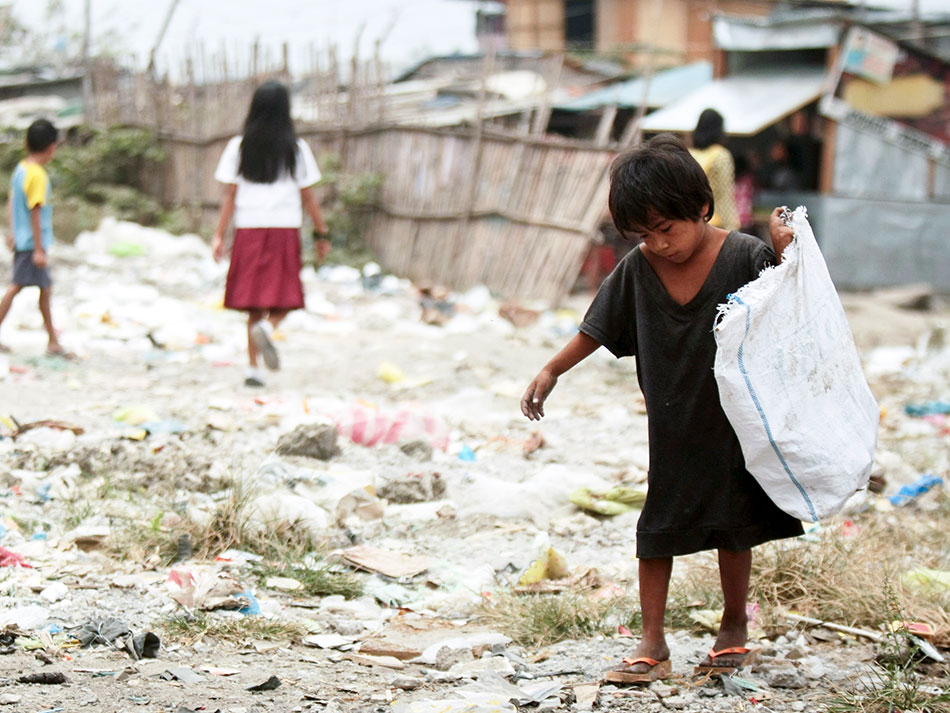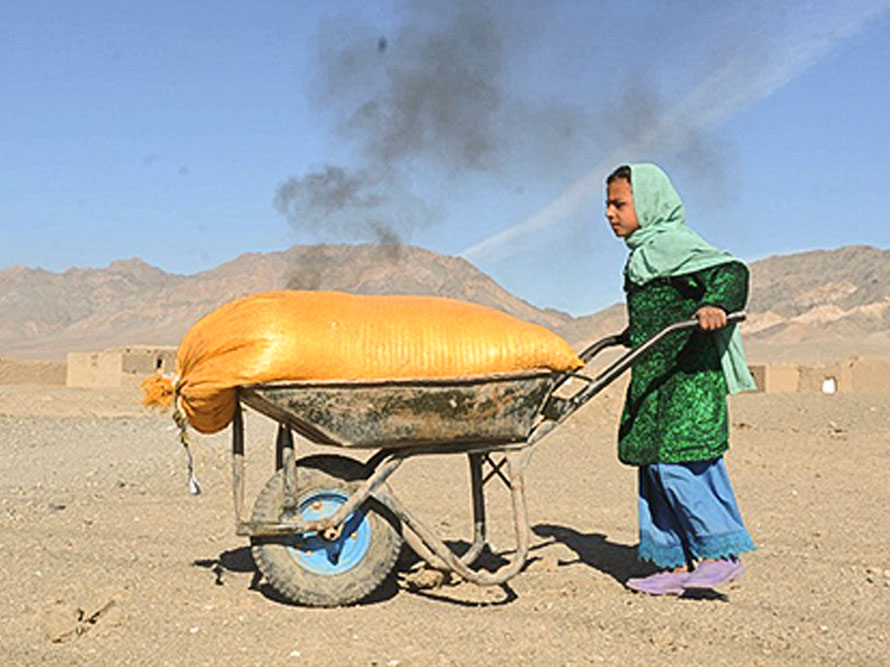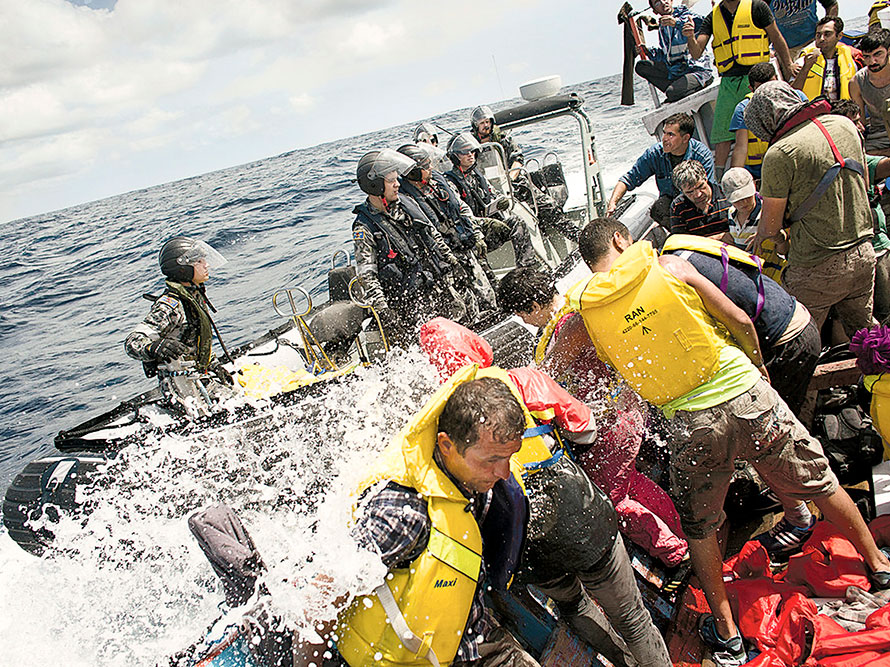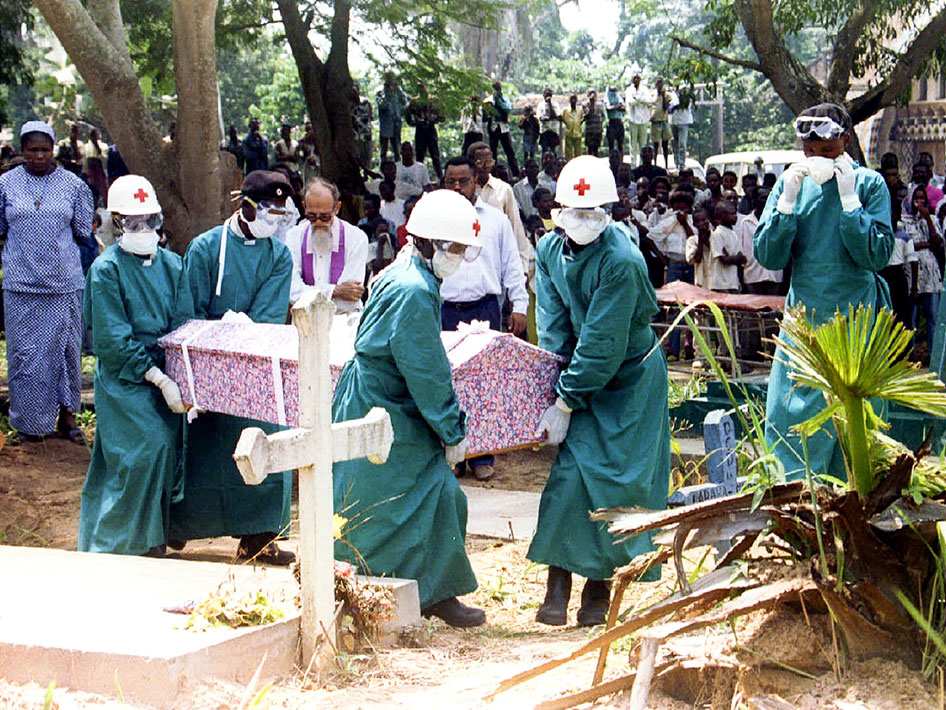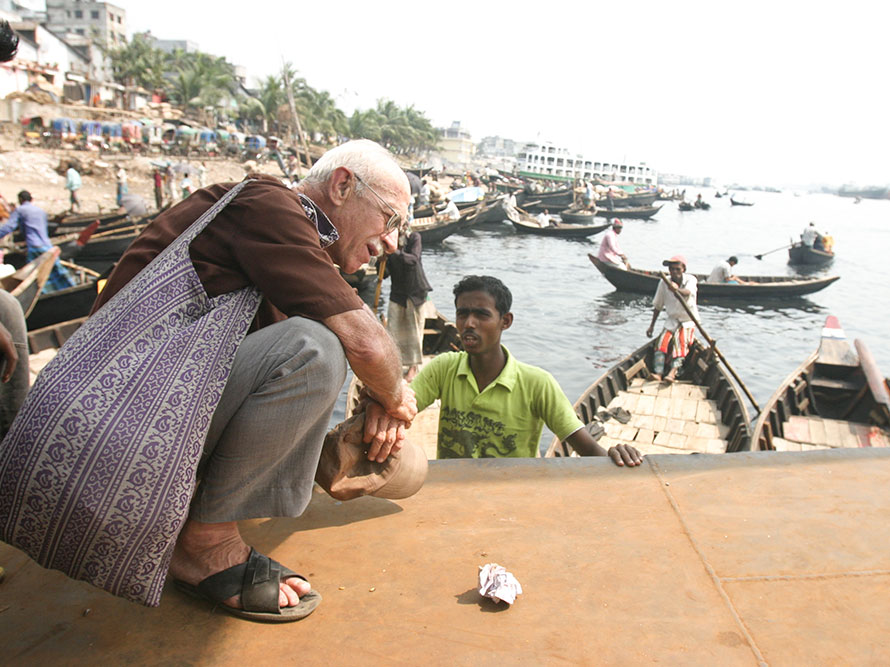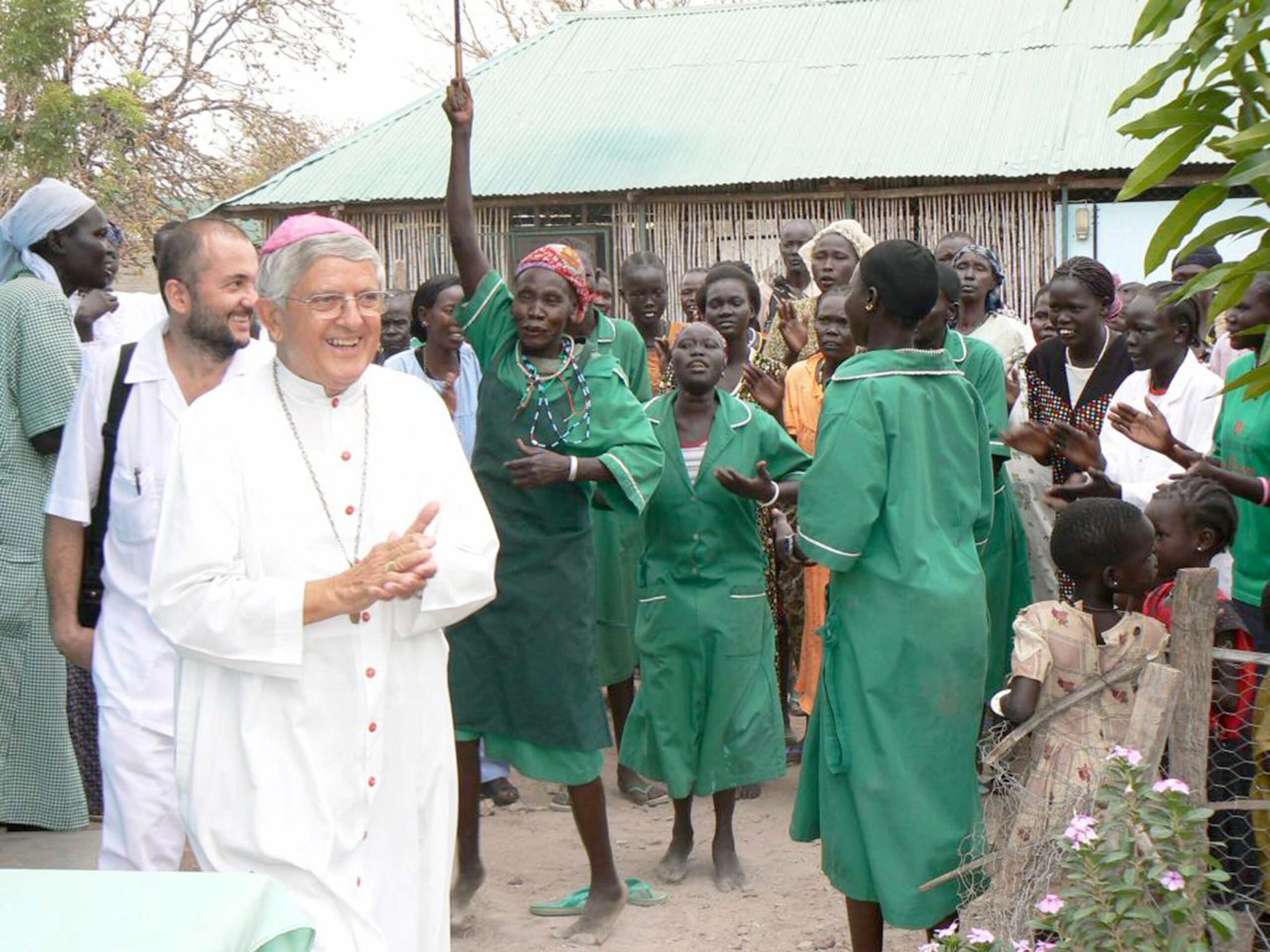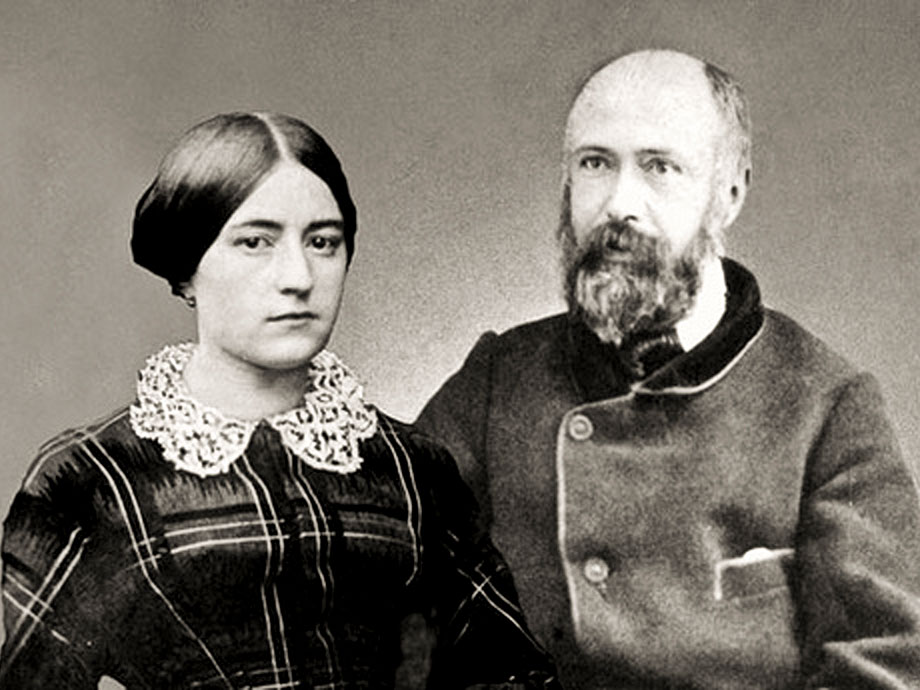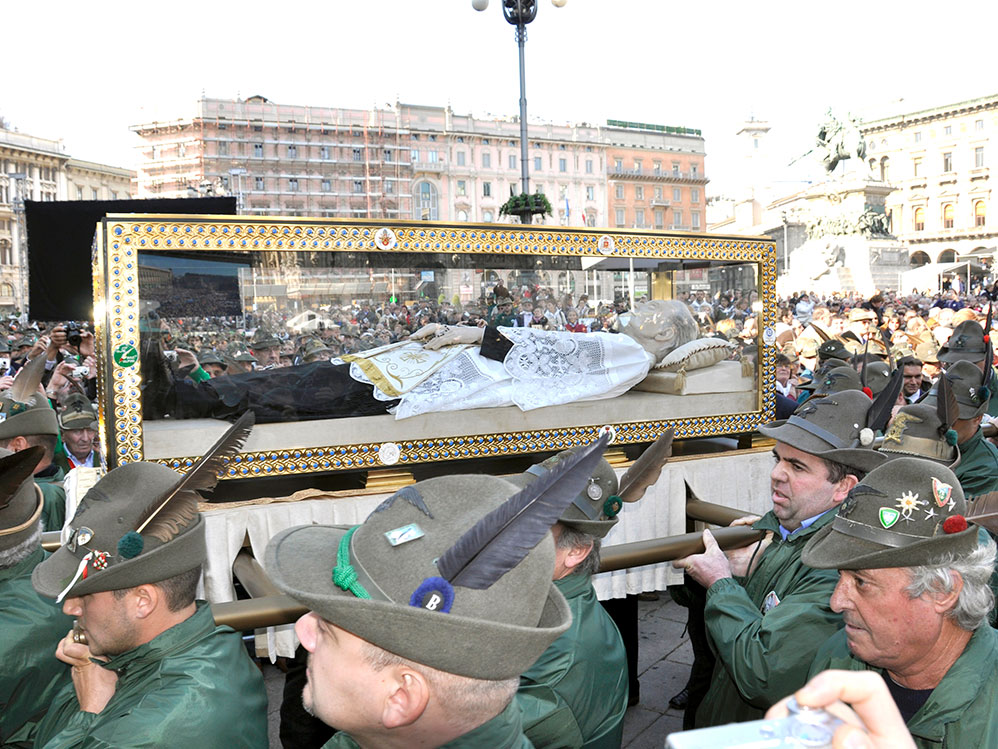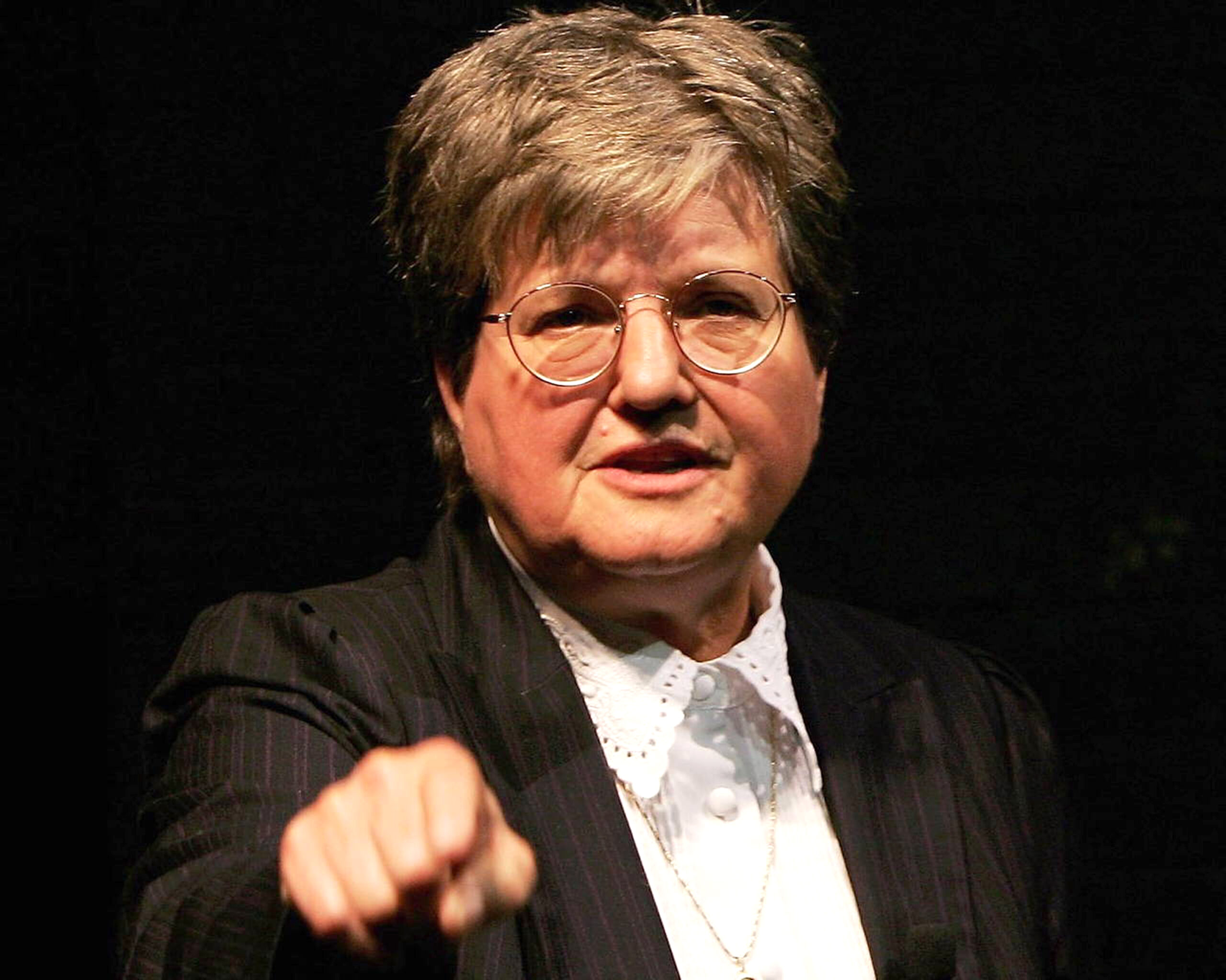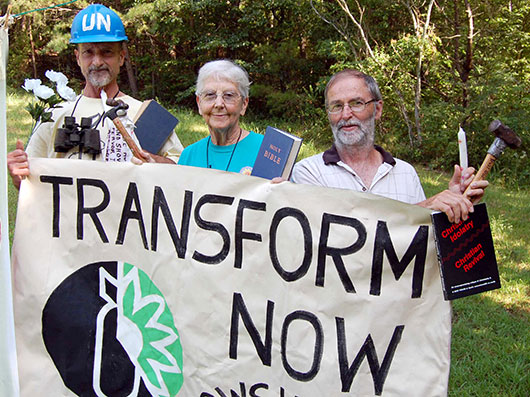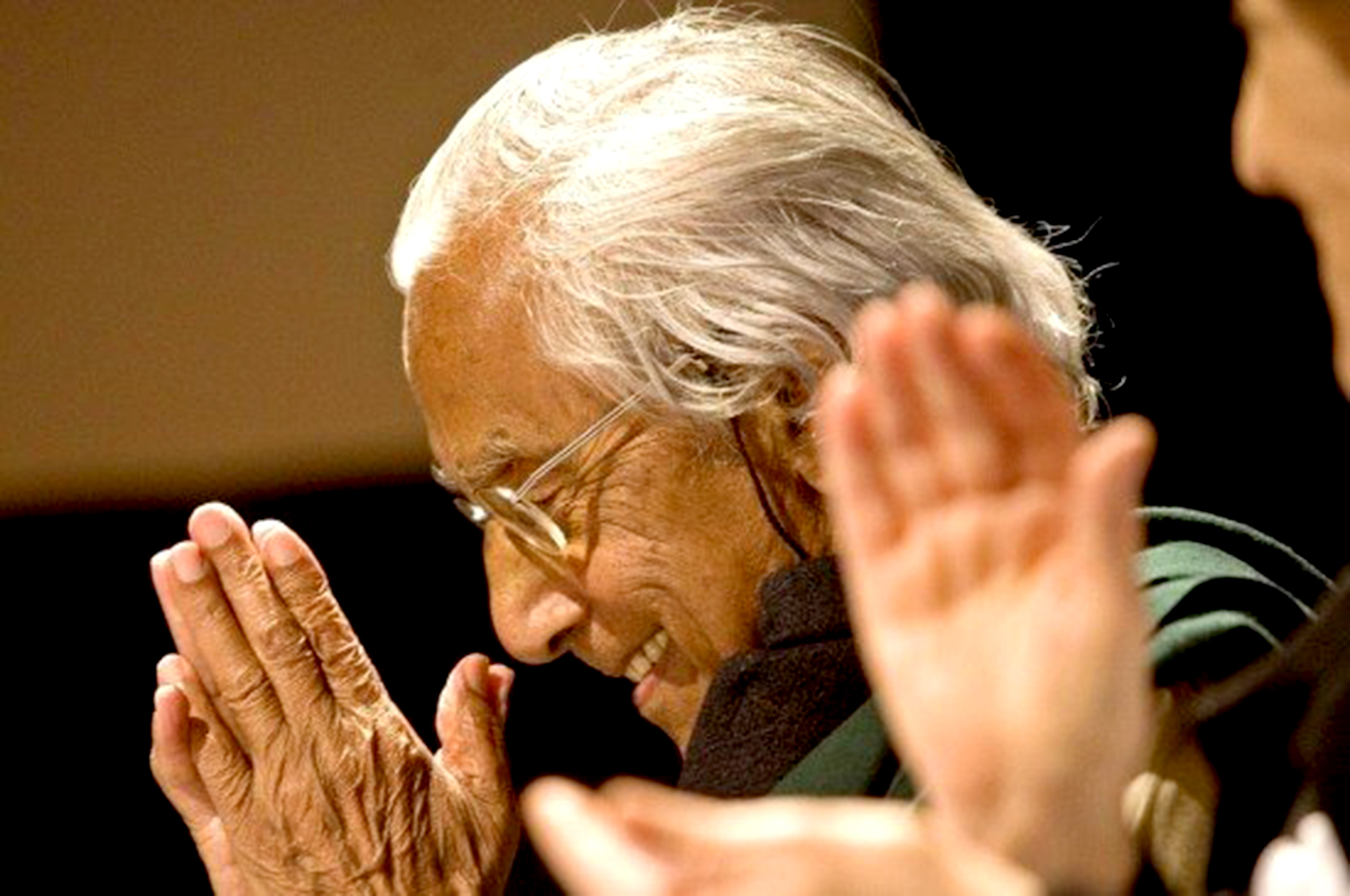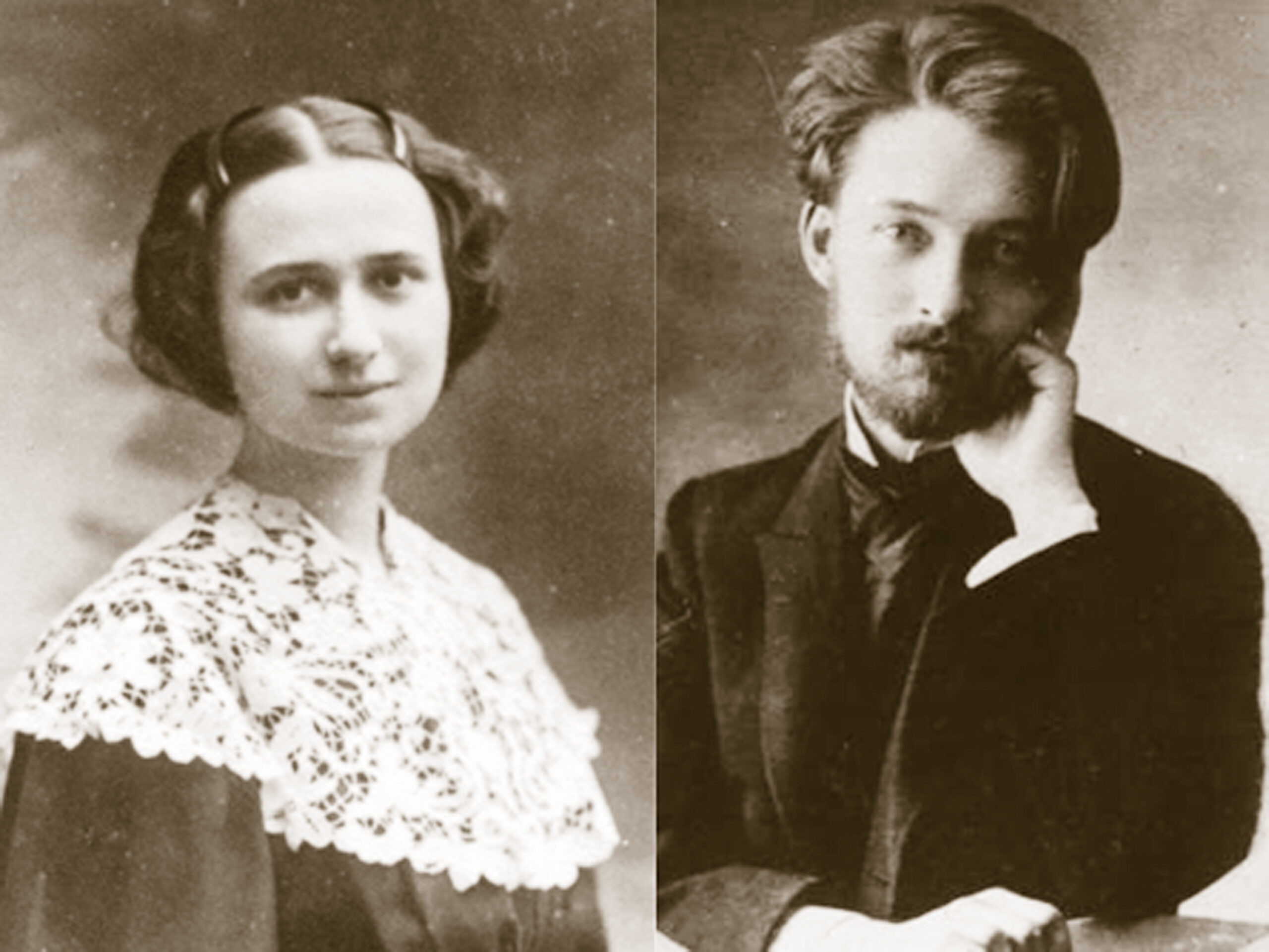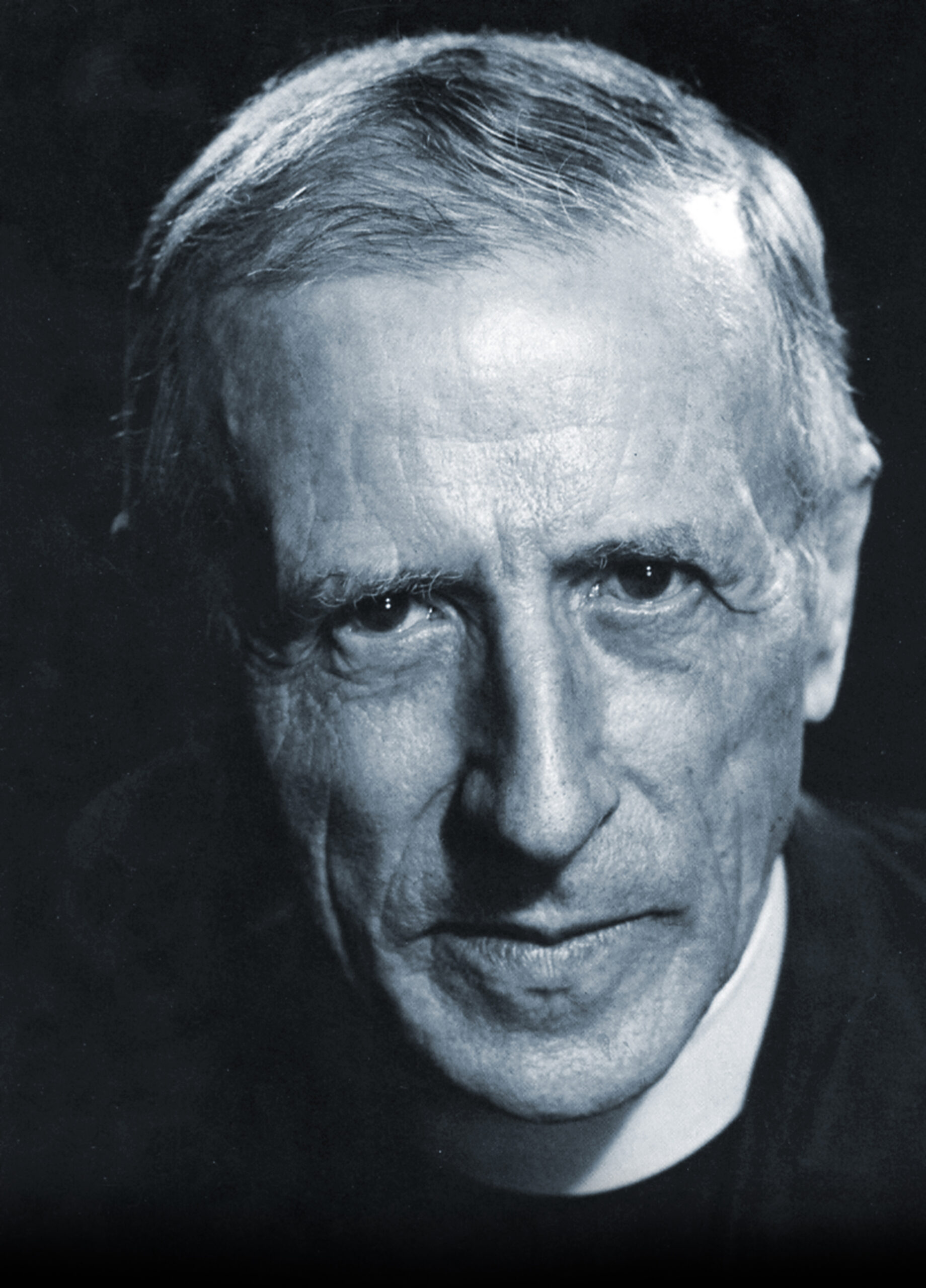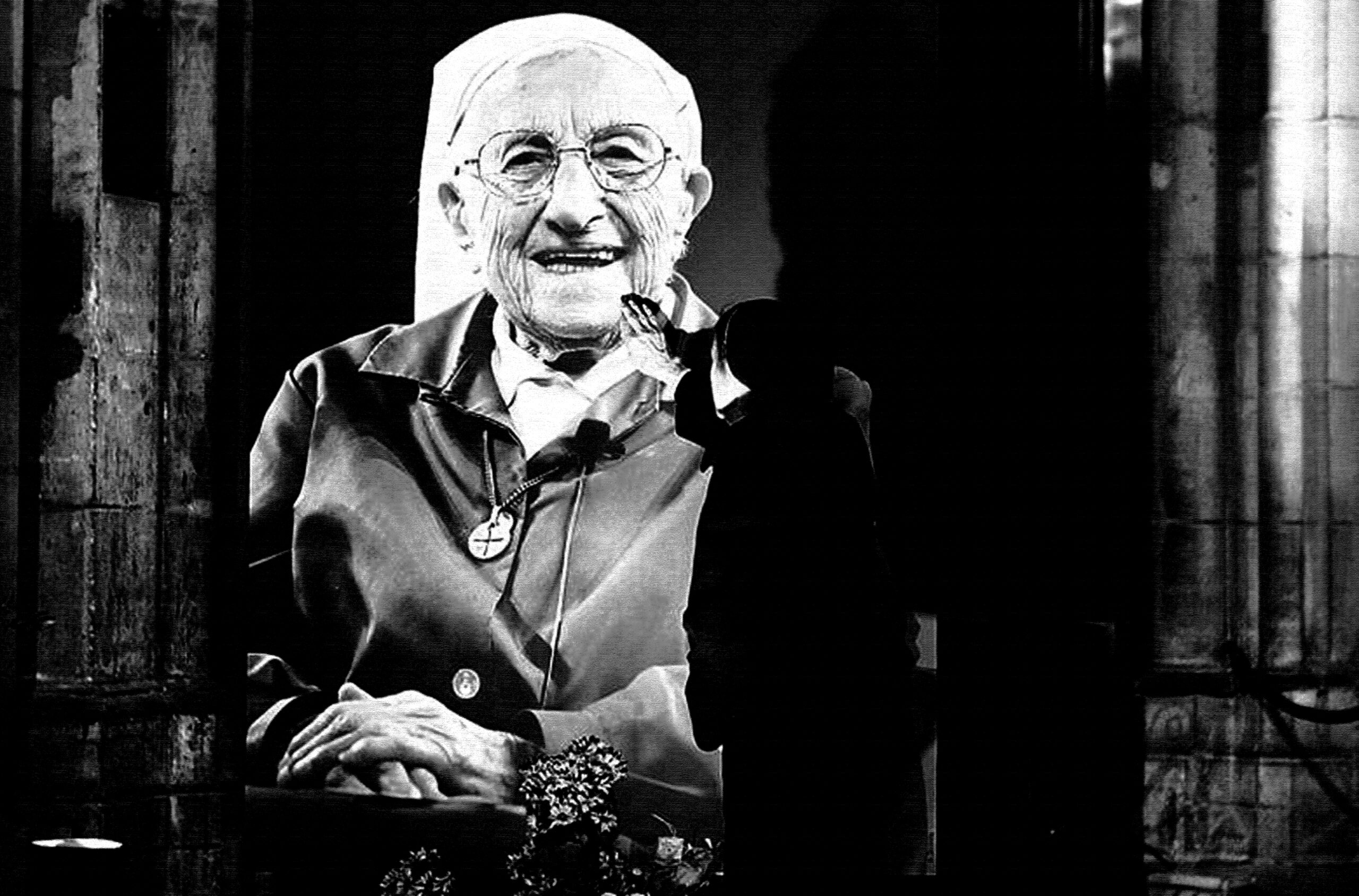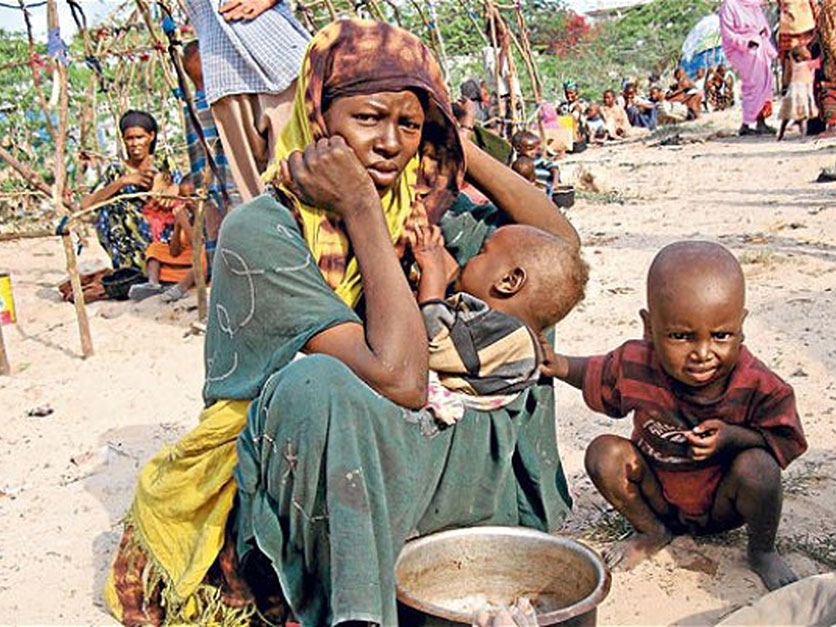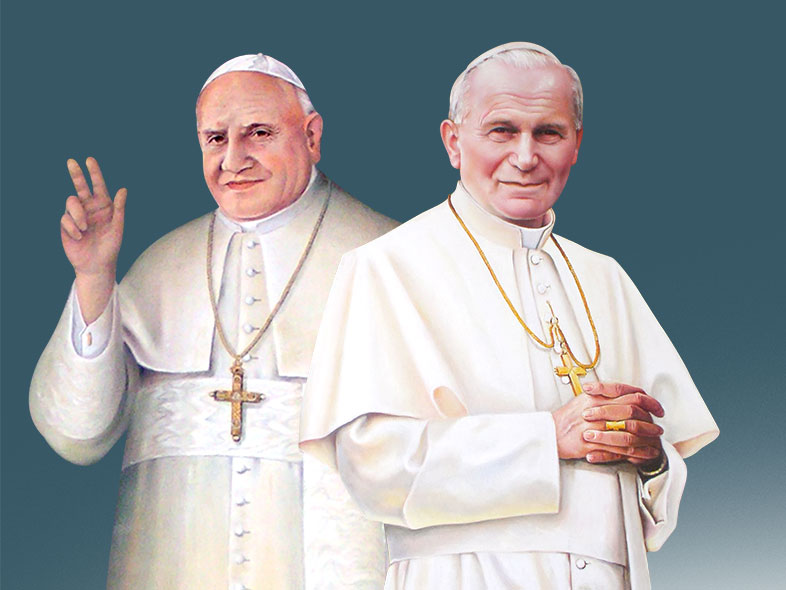At the end of the Second World War, the devastation in Europe was enormous. The fighting had destroyed whole communities. Families and individuals were frightened and displaced. Millions of Germans had been swept from their homes by the advancing Red Army. Many in Poland and Czechoslovakia were driven westward, becoming refugees with no homes and no prospects for the future. A young Dutch priest, by a mysterious design of Divine Providence, took it upon himself to help this desperate wave of human tide.
It was Winter 1947 when Fr. Werenfried Van Straaten wrote an article for the Christmas issue of the magazine of his Abbey of Tongerlo, an article that was to change his whole life. Called “No Room at the Inn,” the article evoked the plight of the homeless and stateless, the almost fifteen million who had fled or had been removed from their homelands in Central and Eastern Europe to Germany as a result of the Yalta and Potsdam Agreements.
Fr. Werenfried followed up the article with a fund-raising campaign: he undertook his first preaching mission to beg alms at a small Flemish village whose inhabitants had suffered much under the Nazi occupiers. He pleaded with them to forgive the enemy of yesterday and to donate food – particularly sides of cured bacon – to be sent to these defeated Germans who were now poverty-stricken and starving.
For the rest of his life, Fr. Werenfried would recall the generous response from those villagers, many of whom had lost loved ones in the war against the Nazis. One of his most famous sayings dates from this time: “People are better than we think. And God, too, is better than we think.” It was this first mission, too, that provided him with the nickname which endured for the rest of his life, “The Bacon Priest.”
The monastery at Tongerlo became a vast warehouse as he hitchhiked through Belgium, begging for supplies of food and clothing. To this day, despite the relocation of the charity’s administrative headquarters to Konigstein near Frankfurt in Germany, Tongerlo has remained the goods depot.
Later, during the years of the Cold War, Fr. Werenfried extended his mission to the countries behind the Iron Curtain, to the Christians of Eastern Europe suffering under communist dictatorships, founding the charity; Aids for the Church in Need (ACN). Often, his work had to be carried out in dangerous circumstances, and in secret. What this young Dutch priest had begun immediately after the war in Germany very soon continued in other countries. Before long, the charity was for the whole suffering Church around the world.
WARRIOR FOR PEACE
The second of four children, Fr. Werenfried was born Philip Johannes Hendrik van Straaten on January 17, 1913 in Mijdrecht, Holland. Both his parents were schoolteachers and devout Catholics and, after his two brothers entered the religious life, the young man decided that two priests in the family were enough. He studied Literature at the University of Utrecht, where he was active in Christian societies and student politics.
But, unable to resist the call, he applied for admission to the Capuchin Franciscans in 1934, having chosen this Order because he admired the poverty and simplicity of its members. One of the requirements for entry was a series of stringent medical tests. The doctor who examined him told the young Hendrik van Straaten that if he undertook the rigors and penances then demanded by the Capuchin way of life, he would be dead within three months. The doctor forbade him from joining.
Van Straaten was devastated, but God had something else in store for him. In the same year, he made a retreat at the flourishing Norbertine Abbey of Tongerlo in Belgium. There he found his spiritual home. Admission to final vows was not assured, however, as his health remained delicate. Then, the Abbot agreed to have the novice as his secretary, and he was admitted to full membership of the Order, taking the religious name Werenfried (Warrior for Peace).
Throughout his life, he was a tireless founder and builder. In the early years of his work in Eastern Europe, he started an “Order of Building Companions” to put up churches and homes for uprooted communities. In 1966, he co-founded a native African congregation of nuns, the Daughters of the Resurrection. An inspiring preacher, Fr. Werenfried van Straaten appealed tirelessly for donations, usually taking the collection personally in his famous “hat of millions.”
There was always a rebellious side to Fr. Werenfried’s character, but he knew how to harness this for good. And it may have been his fearlessness and his vision that made him so popular with young people. He, in turn, recognized that the youth are inclined to respond to a challenge. While he denounced the “great heresy of Communism”, he also berated the West for falling prey to “the practical atheism of materialism” – a society that had no respect for the weakest and the poorest, and which even killed millions of its own young by abortion, and that was in danger of perdition.
“VEHICLES FOR GOD”
Starting as early as 1949, some three thousand ‘rucksack priests’ were supported by the charity so that they could minister to the millions of uprooted Catholics in a devastated post-war Germany. They all were in need of transportation. To solve this, Father Werenfried, in 1950, began his first great campaign to provide “Vehicles for God,” as the initiative was then called.
The center for all this activity quickly became the small town of Königstein, close to the city of Frankfurt, Germany, where ACN still has its international headquarters today. It was in Königstein, now known as “Father Werenfried Square,” that the various vehicles would initially be gathered: motorcycles, VW ‘Beetles,’ and converted trucks and buses – the famous “chapel trucks” which not only carried food and clothing but also had a ‘fold-out’ altar in the center.
Altogether, some 35 “chapel trucks” were created, all bearing the names of saints and angels and traveling with the priests to the scattered groups of German Catholic refugees in areas where Catholic churches did not exist or had been destroyed. Thanks to the generosity of hundreds of thousands of ordinary people, the charity has been able to fund and supply thousands of cars, boats, bicycles, trucks, motorcycles – and even horses and donkeys – to support the Church in her pastoral mission over the course of five decades.
In 1998, ACN also helped fund the creation of the first ever “chapel boat” on the River Volga. Today, there are three such boats, traveling along the Rivers Volga and Don and ministering to isolated communities of believers there. One of them even bears the name “Werenfried.” It is no longer possible today to accurately state the exact number of vehicles supplied by ACN since the program began, but, between 1994 and 2009 alone, no fewer than 6,352 cars, over 1,000 motorcycles, 80 motorboats, and 6,650 bicycles were supplied by the charity in support of the Church’s pastoral outreach.
WORLDWIDE OUTREACH
From this beginning, Fr. Werenfried’s work developed into providing spiritual and material succor to Christians in the persecuted Church behind the Iron Curtain. He travelled throughout the Western world, raising awareness of “the Church of Silence” and of its predicament in the Communist bloc. He collected alms to provide prayer books, catechetical and liturgical texts, as well as material help.
In 1953, Fr. Werenfried founded an influential newsletter, The Mirror. His sources were impeccable, and in the Western world, he was often the only one describing the true scale of suffering and religious persecution under the Communist regimes. In time, he came to distribute more than 700,000 copies in six languages to supporters of his charity around the world. During the early days, he wrote each language version himself, in his own fine handwriting, and these were copied or printed out.
Fr. Werenfried himself travelled extensively behind the Iron Curtain, to hold clandestine meetings with Church leaders and gather information about the situation on the ground. Often, he carried a false passport, and went in disguise; danger did not concern him. When the Russian troops retreated temporarily from Budapest in October 1956, he headed straight for the Hungarian capital.
In his haste, he forgot to take his passport and arrived in the white habit of his Order. For the first time, he met the imprisoned Hungarian Archbishop Mindszenty, who made a deep impression on him; he later became the Archbishop’s spokesman in the West. It was the start of a flood of aid for the Church in Hungary.
In 1959, Fr. Werenfried traveled through Asia, visiting the refugee areas and meeting Mother Teresa in her “House of the Dying” in Calcutta. In 1962, he attended the Second Vatican Council in Rome as a “peritus” or expert. There he met with more than sixty bishops form the Iron Curtain countries who were directly or indirectly receiving help from his organization.
In 1965, during the Simba uprising, Fr. Werenfried visited the Belgian Congo, now the Democratic Republic of Congo. In 1972, the Vatican sent him as a special envoy to Burundi, where the Tutsi were then massacring the Hutus. On his arrival in a small chartered airplane from Zaire, Fr. Werenfried was placed under arrest. After one night, he escaped, finding his way to the Nunciature where he sought and received sanctuary before slipping out of the country a few days later.
TWIN SOULS
Fr. Werenfried was on reasonably good terms with Pope Saint John XXIII who, in 1962, asked him to extend his charity’s work to the Church in Latin America, and with Pope Paul VI, but he disagreed with their policy of seeking an accommodation with Communism.
His greatest supporter was the Polish Saint John Paul II who, as the then-Archbishop of Krakow, had defied the Communist authorities to build a church in the town of Nowa Huta. For months, he and his people carried out building work at night while the Communists pulled down their efforts by day. Eventually, the church was completed and reluctantly accepted by the Communists. The building materials had been paid for by Fr. Werenfried’s charity.
When Saint John Paul II was chosen as pope, Fr. Werenfried was already 65 years old, but continue to be the pontiff’s “twin soul” for the entire length of the pontificate. It was during this time when Fr. Werenfried life took an interest in helping the Orthodox Church. With the changes in Eastern Europe, Fr. Werenfried, who was already over 80 years old, made two extensive trips to Russia and Siberia. On both occasions, he met the Patriarch of Moscow, agreeing to give aid to a small number of Russian Orthodox projects.
To some of his supporters, this was a step too far, but he explained that the duty to help the Orthodox Church in need was the same duty which had given birth to his work at the end of the Second World War. His policy of Christian charity to the Russian Orthodox Church was sanctioned by Pope Saint John Paul himself. Following the death of “The Bacon Priest” on January 31, 2003, at the ripe age of 90, the Pope honored Fr. Werenfried for his passion and dedication to serve those in need, naming him as an “Outstanding Apostle of Charity.”
Fr. Werenfried always believed that his true vocation in life was simply to be “a beggar for God’s suffering children.” In the year 2,000, on the 60th anniversary of his ordination, he said: “I took the vow of poverty and gave away all that I possessed. I retained only my voice which has cried out everywhere for help, and the pen with which I write my begging letters on behalf of the suffering, tirelessly working to bring God’s love and comfort to those in need of it most.”
Fr. Werenfried’s beautiful vision of creating an “international movement of love” lives on, bringing the light and hope of Christ wherever there is hate, discord, oppression or poverty around the world. He wrote: “Let us, therefore, in the Name of God, restore love, which opens doors and hearts to Him. We human beings are one race, all of us…We must love one another and help one another. Let us be like Saint Martin. Once, he was riding his horse when a beggar cried out for help, but Saint Martin had nothing left to give. So he took his cloak, cut it in half and gave one half to the beggar… The beggar was Christ. Every poor man is Christ!”





